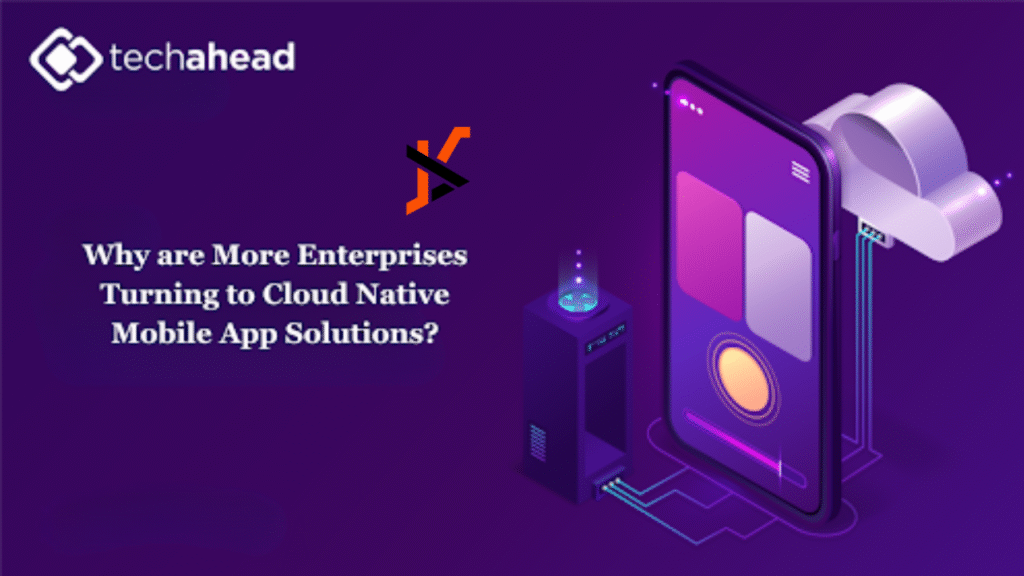Mobile apps have been ruling the online business industry for more than a decade now because of the benefits and rapid growth they have provided. Cloud native mobile applications are an advancement in the world of mobile apps for fulfilling what businesses need to thrive in the market. These apps are prominently known for being versatile, cost-effective, scalable, and agile at the same time.
As the industry continues to evolve, it often becomes difficult for enterprises to keep up efficiency while meeting innovation. This is why it’s the right time to turn towards an iOS and Android app development company to invest in cloud native mobile app solutions. However, if you’re still unaware, why enterprises are turning to cloud-native apps, read this article till the end.
What are Cloud Native Mobile Applications?
Getting a cloud native application doesn’t mean shifting all your business to the cloud; rather, it is a way to use this advanced technology for the best benefit of your business. Such applications are designed particularly to fit in the cloud computing environment while delivering enhanced efficiency and scalability.
Integrated with the microservices architecture, cloud native apps are configured using containers to utilize the benefits of cloud computing. Industry giants, such as Uber, Netflix, and Pinterest, operate through these cloud native apps.
What are the Characteristics of Cloud-Native Mobile Apps?
Let us check out some characteristics of the cloud-native apps:
Containerization
Cloud native applications are packed in containers, such as Docker, that support these applications to operate independently.
Invariable Infrastructure
One significant characteristic of cloud native apps is that the server where these applications are hosted remains unaffected post-deployment.
APIs-oriented
These applications leverage Application Programming Interfaces or APIs, such as REST APIs, to enable the communication of internal services.
Highly-scalable
Such apps are highly scalable in nature. This means they can easily manage an increase in the number of users whenever there comes a need.
Reasons Why Enterprises are Turning to Cloud-Native Solutions
Here are some convincing reasons that explain the need to consider cloud-native applications:
Target Higher Flexibility
Traditional or legacy mobile apps were all about a one-size-fits-all solution, which was a barrier, making the app more vulnerable. However, the microservices architecture of cloud native mobile app solutions can quickly scale to meet the changing business demands. Upgrading the business is possible, even without any manual interference.
Secured Infrastructure
With the utilization of microservices architecture, there are lesser chances of external attacks or any major downtime issues. The security mechanisms around APIs, like JWT and OAuth, provide an additional layer to protect sensitive data. Cloud native apps help you take the right actions to develop an app that will monitor any security issues and respond to them in real time.
Cost-effective Applications
Cloud service providers usually follow the pay-as-you-go pricing model, which means you have to pay only for what you use. There is no need to pay a penny for the underutilized resources. It also eliminates the need to manage the on-premise business architecture, resulting in reduced hardware and maintenance costs.
Better Collaboration
Designed using DevOps culture, cloud-native apps help to boost collaboration among team members as it is a unified team deployment. This brings better cooperation and minimizes conflicts during the development process.
Access From Anywhere
Cloud-native apps provide the ability to work remotely, allowing global collaboration benefits. The development environment is easily accessible from anywhere without hampering the performance or security.
How to Utilize Cloud-Native App Development Services?
Data security, migration complexities, and storage challenges have been observed by enterprises during the development process.
In order to get a smooth, secure and efficient cloud-native mobile app solution, you might need AWS cloud consulting. With the right service provider by your side, you can get your mobile app within a shorter period of time with minimum errors and delays.
Conclusion
Cloud-native apps are strengthening the backbone of enterprises to help them survive the competition in the coming decade. These are highly scalable, easy to manage, affordable, resilient, and portable. If you are in search of a way to improve and surpass the businesses still relying on traditional apps, it is your chance to make the switch.
Contact with a top app development company to learn how to move your business to the cloud with the solutions designed to target business potential.

